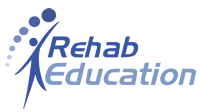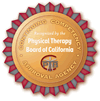Brachial Plexus Birth Injury
Comprehensive Assessment and Treatment
This two-day seminar addresses all aspects of conservative and surgical management of Brachial Plexus Birth Injury (BPBI) from infancy through adolescence.
Treating infants and children with BPBI poses many challenges to therapists working with this population. Participants in this seminar will be presented with a detailed overview of the anatomy of the initial nerve injury and the muscular and bony sequelae that often results in lifelong neuromuscular and orthopedic challenges.
Participants will gain a detailed understanding of surgical interventions, non-surgical medical interventions, and radiological tests, enabling them to make appropriate medical and surgical referrals. Participants will learn comprehensive examination and intervention strategies for each stage of recovery from infancy through adolescence.
This lecture-based course includes video-recorded demonstrations of specific examination tools and intervention strategies, including traditional interventions as well as the use of state-of-the art technology. Strategies for family support and intervention will be discussed as well. This course content is not intended for use by any participants outside the scope of their license or regulation.
You will be required to:
- attend all 15 hours of this course to earn your CE credits.
- comply with Covid-19 policy at host site. Please review on registration page prior to registering.
Upon completion of online registration, you will be emailed a course receipt. This is NOT a course confirmation. Your course confirmation will be emailed separately. It is recommended that you wait for written course confirmation prior to booking non-refundable travel or lodging. If you have not received course confirmation 10 days prior to your live CE course, please contact Rehab Education, LLC to check on status of your registration.
By the end of this course, participants will be able to:
- identify the probable location and severity of a brachial plexus injury when presented with a newborn diagnosed with Brachial Plexus Birth Injury by a medical professional
- identify three complications of a Brachial Plexus Birth Injury on normal shoulder girdle anatomy
- identify three developmental motor patterns that may result in worsening of the injury and should be adapted on children with a Brachial Plexus Birth Injury.
- develop a treatment plan for a newborn with a Brachial Plexus Birth Injury based on knowledge of shoulder girdle anatomy and developmental progressions
- identify and explain two surgical options for improving the self-care skills of a teen diagnosed with Brachial Plexus Birth Injury
- choose and justify an appropriate evaluation tool to assess levels of function in multiple areas based on a case scenario of a specific aged child
- develop a treatment plan appropriate for a child with a Brachial Plexus Birth Injury based on the course treatment paradigm in combination with results of assessment
- choose 3 treatment modalities based on a case scenario of a child with Brachial Plexus Birth Injury
Day One
| 8:00-8:30 | Sign in |
| 8:30-10:00 | Overview of Brachial Plexus Birth Injury |
| 10:00-11:00 | Impact of Brachial Plexus Birth Injury on Shoulder Girdle Anatomy |
| 11:00-11:15 | Break |
| 11:15-12:15 | Developmental Apraxia related to Brachial Plexus Birth Injury |
| 12:15-1:15 | Lunch |
| 1:15-2:30 | Brachial Plexus Birth Injury in the Newborn (0-3 months) |
| 2:30-4:00 | Surgical Interventions for Brachial Plexus Birth Injury throughout Childhood |
| 4:00-4:15 | Break |
| 4:15-5:15 | Surgical Case Presentations |
| 5:15 – 5:30 | Questions, Answers, Review |
Day Two
| 8:00-10:00 | Therapeutic Examination and Evaluation |
| 10:00-10:30 | Live/Video Assessment |
| 10:30-10:45 | Break |
| 10:45-12:30 | Intervention Principles for Brachial Plexus Birth Injury |
| 12:30-1:30 | Lunch |
| 1:30-3:00 | Application of Assessment and Intervention Principles in Children with Brachial Plexus Birth Injury |
| 3:00-3:15 | Break |
| 3:15-4:15 | Video Case Studies/Group Problem-Solving |
| 4:15-5:00 | Discussions, Networking, etc. |
15 contact hours (15 clock hours) synchronous learning
This course content is not intended for use by any participants outside the scope of their license or regulation.
This live in-person CE course is accepted by many professional credentialing organizations and state professional regulatory boards. Rules and regulations change frequently without notification, and apply differently to live and online courses. Please check with your state board to confirm accuracy of this list and acceptance of contact hours. A certificate of Attendance will be issued to all participants upon completion of the course and may be used for CEU verification of credits.
Rules and regulations change frequently without notification, and apply differently to live and online courses. Please check with your state board to confirm accuracy of this list and acceptance of contact hours. Certificate of Attendance will be issued to all participants upon completion of the course and may be used for CEU verification of credits.
CE credits vary by state. Please check with your state board/certifying agency to confirm conversion of contact hours to CEUs.
Rehab Education, LLC is recognized as:
- AOTA approved provider of OT and OTA continuing education (#6177)
- approved provider of PT and PTA continuing education by the NY State Education Department Board of Physical Therapy.
- approved provider of PT and PTA continuing education by IDFPR/ Illinois Board of Physical Therapy (#216000227).
 American Occupational Therapy Association (AOTA): Rehab Education, LLC is an AOTA Approved Provider (#6177) of professional development. This live CE course is offered at 1.5 CEUs [intermediate level, OT Service Delivery]. The assignment of AOTA CEUs does not imply endorsement of specific course content, products, or clinical procedures by AOTA or indicate AOTA approval of a certification or other professional recognition. (Course must be completed prior to 7/31/2025)
American Occupational Therapy Association (AOTA): Rehab Education, LLC is an AOTA Approved Provider (#6177) of professional development. This live CE course is offered at 1.5 CEUs [intermediate level, OT Service Delivery]. The assignment of AOTA CEUs does not imply endorsement of specific course content, products, or clinical procedures by AOTA or indicate AOTA approval of a certification or other professional recognition. (Course must be completed prior to 7/31/2025)
Arkansas Physical Therapy Association: This course has been approved by the Arkansas APTA for 15 contact hours. Approval #APTA-AR 2010
California OT Board: California OT Board: This course and instructor have been approved by the CA Board of OT for 15 contact hours of post-professional education in the advanced practice area of hand therapy. Approval #22-H13.
 Physical Therapy Board of California: The Physical Therapy Board of California recognizes Rehab Education, LLC as an approval agency to approve providers offering continuing competency courses for CA licensed PTs and PTAs. This course is approved for 15 contact hours.
Physical Therapy Board of California: The Physical Therapy Board of California recognizes Rehab Education, LLC as an approval agency to approve providers offering continuing competency courses for CA licensed PTs and PTAs. This course is approved for 15 contact hours.
Illinois State Board of Physical Therapy: Approved CE Sponsor by Illinois State Board of Physical Therapy, Division of Professional Regulations, Approval #216.000227. (Course must be taken prior to 09-30-2026)
NY State Physical Therapy Board: Rehab Education, LLC is recognized as an approved provider of PT and PTA continuing education by the NY State Education Department Board of Physical Therapy. (Course must be taken prior to 05-10-2025)
States that Accept AOTA Approval / PT State Boards’ Approval Reciprocity
The assignment of AOTA CEUs does not imply endorsement of specific course content, products, or clinical procedures by AOTA. At the time of listing, these states currently recognize AOTA Approved Providers for OT continuing education either in regulatory language or by formal written communication to AOTA. For an up-to-date list, see the AOTA website.
Alabama
Alaska
Arkansas
Arizona*
California
Delaware
District of Columbia
Florida **(self-report to CE Broker)Georgia*
Illinois
Indiana
Kentucky
Louisiana*
Maryland
Massachusetts
MichiganMinnesota
Mississippi*
Missouri
Montana
Nevada
New Hampshire
New Mexico
New YorkNorth Carolina
North Dakota
Ohio
Oregon
Oklahoma
Pennsylvania
Rhode IslandSouth Carolina*
South Dakota
Tennessee*
Texas
Vermont
Virginia
Wisconsin (self study courses only)
*see CE Broker
**FL licensees may need to self-submit courses in CE BrokerDisclaimer: Rehab Education LLC provides this list for your convenience. At the time of listing, the following state boards accept courses by virtue of approval by other organizations. It is the responsibility of the participant registering for a course to check with their state board to confirm rules and regulations regarding acceptance of contact hours for live and online courses.
The following PT Boards accept courses approved by other PT State boards*:
Alaska
Delaware
District of Columbia
Hawaii
IllinoisIndiana
Kansas
Kentucky
Michigan
MontanaNorth Carolina
North Dakota
Oregon
Pennsylvania
TennesseeUtah
Vermont
Virginia
Wyoming
The following PT Boards accept courses approved by other APTA state associations*:
Alaska
Arizona
Delaware
District of Columbia
Florida **(self-report to CE Broker)
GeorgiaKansas
Kentucky
Mississippi
Missouri
North Carolina
North DakotaRhode Island
South Dakota
Utah
Vermont
Virginia
Wyoming
The following PT Boards do not require pre-approval for continuing education activities as long as they are “directly related to the licensee’s practice of physical therapy” and/or meet the guidelines established by the board.
Alabama
Colorado
Connecticut
Iowa
New Hampshire
Washington
Wisconsin
HELPFUL LINKS:
*NBCOT…National Board for Certification of Occupational Therapy (view PDU requirements)+HTCC… Hand Therapy Certification Commission (view recertification requirements)
Hand Therapy Certification Commission (HTCC): This course is accepted by HTCC towards re-certification.
Fast Facts
Skill Level: Beginner/Intermediate
Delivery Method: Live, In-person Seminar
CE: 15 contact hours (synchronous learning)
Who Should Attend:
- Occupational Therapists
- Occupational Therapy Assistants
- Physical Therapists
- Physical Therapist Assistants
- Certified Hand Therapists
- Registered Nurses
Locations:
Do you want to host this Course at your facility?
Instructors:
Cindy Servello, MA, OTR/L
 has been a practicing pediatric occupational therapist for the last forty-five years. Over the last twenty years, she has developed a specialty expertise in the treatment of infants and children with obstetric brachial plexus injuries. In addition to being the primary therapist for The Neonatal Brachial Plexus Center in New Jersey with a group of pediatric neurologists, she has served as the National Therapist Consultant for the Texas Nerve and Paralysis Institute where her responsibilities included consultation to therapists, parents, and physicians, primary involvement in clinics nationally in coordination with top level surgeons and brachial plexus specialists, and participation in brachial plexus seminars which address state-of-the-art surgical and treatment interventions. She continues to consult with surgeons, therapists, and parents both nationally and internationally as well as providing educational webinars to parents and therapists.
has been a practicing pediatric occupational therapist for the last forty-five years. Over the last twenty years, she has developed a specialty expertise in the treatment of infants and children with obstetric brachial plexus injuries. In addition to being the primary therapist for The Neonatal Brachial Plexus Center in New Jersey with a group of pediatric neurologists, she has served as the National Therapist Consultant for the Texas Nerve and Paralysis Institute where her responsibilities included consultation to therapists, parents, and physicians, primary involvement in clinics nationally in coordination with top level surgeons and brachial plexus specialists, and participation in brachial plexus seminars which address state-of-the-art surgical and treatment interventions. She continues to consult with surgeons, therapists, and parents both nationally and internationally as well as providing educational webinars to parents and therapists.
What Students are Saying:
“Loved that we tackled a complex kiddo. Great reminder of balancing our “excitement” as therapists (to try many options to normalize alignment) with the day-to-day needs/wants of a family. Really appreciated the various points of view and multiple suggestions from all the participants .“
“Absolutely excellent. Many of the interventions I had heard of but never seen them used in such a thorough way.”

 American Occupational Therapy Association (AOTA): Rehab Education, LLC is an AOTA Approved Provider (#6177) of professional development. This live CE course is offered at 1.5 CEUs [intermediate level, OT Service Delivery]. The assignment of AOTA CEUs does not imply endorsement of specific course content, products, or clinical procedures by AOTA or indicate AOTA approval of a certification or other professional recognition. (Course must be completed prior to 7/31/2025)
American Occupational Therapy Association (AOTA): Rehab Education, LLC is an AOTA Approved Provider (#6177) of professional development. This live CE course is offered at 1.5 CEUs [intermediate level, OT Service Delivery]. The assignment of AOTA CEUs does not imply endorsement of specific course content, products, or clinical procedures by AOTA or indicate AOTA approval of a certification or other professional recognition. (Course must be completed prior to 7/31/2025) Physical Therapy Board of California: The Physical Therapy Board of California recognizes Rehab Education, LLC as an approval agency to approve providers offering continuing competency courses for CA licensed PTs and PTAs. This course is approved for 15 contact hours.
Physical Therapy Board of California: The Physical Therapy Board of California recognizes Rehab Education, LLC as an approval agency to approve providers offering continuing competency courses for CA licensed PTs and PTAs. This course is approved for 15 contact hours.